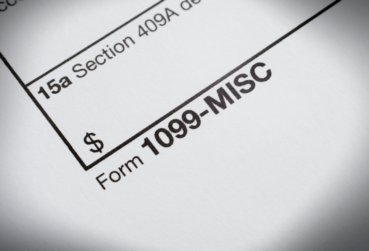What You Need to Know About the Incoming Tax Law
 By Mariette “Pete” Luchini, CPA, Cordell, Neher & Company, Wenatchee, Certified Public Accountant
By Mariette “Pete” Luchini, CPA, Cordell, Neher & Company, Wenatchee, Certified Public Accountant
The Tax Cuts and Jobs Act created by our government in late December is the largest change to the tax system in over three decades. Under this new legislation, substantial changes have been made to both individual and corporate tax rates. While most of the corporate provisions are permanent, the individual provisions are set to expire at the end of 2025.
Following is a simplified list of key provisions of this new law:
Individual Tax Bracket Rates. While taxpayers will still fall into one of seven tax brackets based on their income, the rates have changed. Some of the brackets have been lowered. The new rates are: 10%, 12%, 22%, 24%, 32%, 35% and 37%.
Standard Deduction. The standard deduction has nearly doubled. For single filers it has increased from $6,350 to $12,000; for married couples filing jointly, it’s increased from $12,700 to $24,000. For head of household, it went from $9,350 to $18,000, and for married filing separately it went from $6,350 to $12,000.
Personal Exemption. Under the prior tax code, a taxpayer could claim a $4,050 personal exemption for themselves, their spouse and each of their dependents, thus lowering their taxable income. Under the new tax code, the personal exemption has been eliminated. For some families, this may reduce or counter the tax relief received from other parts of the reform package.
State and Local Tax Deduction. The state and local tax deduction, or SALT, now has a cap. While it remains in place for those who itemize their taxes, it now has a $10,000 limit. This limit includes property taxes, income taxes, and sales taxes combined. This is a significant change as filers could previously deduct an unlimited amount for these taxes on their Schedule A.
The Child Tax Credit. The child tax credit has been doubled to $2,000. It’s also available to people with higher income than in the past. Single parents who make up to $200,000 and married couples who make up to $400,000 can claim the entire credit.
Non-Child Dependents. A new tax credit is available for non-child dependents. Taxpayers can claim a $500 temporary credit for non-child dependents. This can apply to a number of people adults support, such as children over age 17, elderly parents, or adult children with a disability.
Alternative Minimum Tax. Fewer taxpayers will be affected by the alternative minimum tax. The purpose of the AMT is to ensure those who receive a lot of tax breaks are still paying some level of federal income taxes. The AMT exemption had been $54,300 for single filers, and it began to phase out at $120,700. For joint filers, it was $84,500, and it began to phase out at $160,900. The new law allows for an AMT exemption of $70,300 for singles and $109,400 for married couples. Further, the new law’s phase out is at $500,000 for single filers and $1 million for joint filers. These changes are set to expire at the end of 2025.
Mortgage Interest Deduction. Going forward, anyone purchasing a home will only be able to deduct interest on the first $750,000 of their mortgage debt. This amount is down from $1 million. Existing mortgages are not affected by this limit.
529 Savings Accounts. In the past, 529 savings accounts were untaxed and could only be applied towards college expenses. Under the new tax code, up to $10,000 can be distributed annually to cover the cost of sending a child to a public, private, or religious elementary or secondary school.
Alimony Payment Tax Deduction. The tax deduction for alimony paid and the taxability as income of alimony received will be eliminated for couples who sign divorce or separation paperwork after December 31, 2018.
Moving Expenses Deduction. The tax deduction for moving expenses is gone, but there is an exception for members of the military.
Disaster Deduction. Under the prior tax code, losses sustained due to a fire, storm, shipwreck, or theft that insurance did not cover and exceeded 10% of adjusted gross income, were deductible. Effective under the new tax code, taxpayers can only claim the disaster deduction if they are affected by an official national disaster.
Estate Tax. Prior to the tax reform, a limited number of estates were subject to the federal estate tax, a tax which applies to the transfer of property after someone dies. Now, even fewer taxpayers will be affected. The amount of money exempt from the tax -- previously set at $5.49 million for individuals, and at $10.98 million for married couples -- has been doubled. This does not, however, alter the Washington State Estate Tax exclusion, which is currently set at $2,193,000.
Health Insurance Mandate. Effective in 2019, individuals are no longer required to pay a shared responsibility payment with their taxes if they don’t have health insurance. However, in both the 2017 and 2018 tax years, the shared responsibility payments still applies.
Corporate Tax Rate. Beginning in 2018, the corporate tax rate has been changed from a tiered system with a top rate of 35% to a flat rate of 21%.
Pass-through Entities. The owners, partners, and shareholders of sole proprietorships, partnerships, LLCs, and S-corporations will receive a tax break. Those who pay their share of the business’ taxes through their individual tax returns will have a 20% deduction, subject to some limits. Professional service entities (attorneys, accountants, etc.) are more limited than others.
Sexual Harassment Settlements. Companies can no longer deduct any settlements, payouts, or attorney's fees related to sexual harassment or non-disclosure agreements.
Bonus Depreciation. The bonus depreciation increased from 50% to 100% for property placed in service after September 27, 2017, and before January 1, 2023. At that date, a 20% phase-down schedule will begin. Bonus depreciation is also now available for used property as well as new.
Vehicle Depreciation. The new tax bill raises the cap placed on depreciation write-offs of business-use vehicles. It is $10,000 for the first year a vehicle is placed in service; $16,000 for the second year; $9,600 for the third year; and $5,760 for each subsequent year until costs are fully recovered. The new limits only apply to vehicles placed in service after December 31, 2017.
What’s Staying the Same?
Student Loan Interest. You can still deduct Student Loan Interest – the maximum deduction for this will remain at $2,500.
Medical Expenses. The deduction for medical expense remains and the threshold was lowered from expenses greater than 10% of adjusted gross income to expenses that exceed 7.5% of adjusted gross income.
Teachers. Teachers will continue to deduct up to $250 to offset what they spend on resources for the classroom.
Electric Car Credit. If you drive a plug-in electric vehicle, you can still claim a credit of up to $7,500.
Home Sellers. Homeowners that sell their house and make a profit can exclude up to $500,000 (or $250,000 for single filers) from capital gains. This still requires that it is their primary home and they have lived there for at least two of the past five years.
Tuition Waivers. Tuition Waivers, typically awarded to teaching and research assistants, will remain tax free.
What Does This All Mean?
Although doubling the standard deduction may simplify the process of filing taxes for some individuals, there are still deductions and credits to consider. More so, the filing for small businesses is becoming more complicated. Depending on your situation, it may be beneficial to review your filing status as part of an overall tax planning strategy.
The purpose of this article is to summarize the key provisions of the new law. It does not include everything about the new law that may affect your tax situation. As each client scenario will be different, the professionals in our office are available to answer your questions regarding the individual, estate, and corporate tax provisions outlined in the tax reform bill. Please contact Pete or your CNC CPA to get answers to your additional questions.
Pete Luchini is a Certified Public Accountant with Cordell, Neher & Company, PLLC, a Wenatchee public accounting firm. Pete may be reached at 509-663-1661 or pete@cnccpa.com. www.cnccpa.com
Events & Deadlines
Latest Past Events
Community Service Day
Cordell Neher & Company, PLLC 175 E Penny Rd #1, Wenatchee2024 Shred Event
Cordell Neher & Company, PLLC 175 E Penny Rd #1, WenatcheeCNC Newsletter
Subscribe and stay informed on policy changes that could have an impact on you.
Footer Contact
Check the background of your financial professional on FINRA's BrokerCheck®
Privacy & Usage: The information on the Cordell, Neher & Company, PLLC website is provided with the understanding that it should not be substituted, in any way, for consultation with a professional Certified Public Accountant, accountant, tax, legal or other competent advisor. Cordell, Neher & Company, PLLC makes every attempt to ensure that the information contained on their websites are obtained from reliable sources, but is not responsible for any errors and/or omissions or from the results obtained from the use of any information. This site contains links to servers maintained by other organizations. Cordell, Neher & Company, PLLC cannot provide any warranty regarding the accuracy or source of information found on any of these servers, the content of any file the user might use to download from a third-party site, and is not responsibility for the content found on any of these servers or for any links these servers maintain with other servers.
Avantax affiliated advisors may only conduct business with residents of the states for which they are properly registered. Please note that not all of the investments and services mentioned are available in every state. Securities offered through Avantax Investment ServicesSM, Member FINRA, SIPC, Investment Advisory services offered through Avantax Advisory ServicesSM,Insurance services offered through an Avantax affiliated insurance agency. 3200 Olympus Blvd., Suite 100 Dallas, TX 75019 972-870-6000.
Avantax financial professionals may only conduct business with residents of the states for which they are properly registered. Please note that not all of the investments and services mentioned are available in every state. Securities offered through Avantax Investment Services.SM, Member FINRA, SIPC. Investment Advisory Services offered through Avantax Advisory Services SM. Insurance services offered through an Avantax affiliated insurance agency. Method 10® is property of Avantax Wealth Management.SM All rights reserved 2020. The Avantax family of companies exclusively provide investment products and services through its representatives. Although Avantax Wealth Management does not provide tax or legal advice, or supervise tax, accounting or legal services, Avantax representatives may offer these services through their independent outside business. This information is not intended as tax or legal advice. Please consult legal or tax professionals for specific information regarding your individual situation.
The Avantax family of companies exclusively provide financial products and services through its financial representatives. Although Avantax Wealth ManagementSM does not provide or supervise tax or accounting services, Avantax Representatives may offer these services through their independent outside business. Content, links, and some material within this website may have been created by a third party for use by an Avantax affiliated representative. This content is for educational and informational purposes only and does not represent the views and opinions of Avantax Wealth ManagementSM or its subsidiaries. Avantax Wealth ManagementSM is not responsible for and does not control, adopt, or endorse any content contained on any third party website.
This information is not intended as tax or legal advice. Please consult legal or tax professionals for specific information regarding your individual situation. Investments & Insurance Products: Are not insured by the FDIC or any federal government agency- Are not deposits of or guaranteed by the bank or any bank affiliate- May lose Value
Avantax Investment ServicesSM and Avantax Advisory ServicesSM are not affiliated with CNC Financial Group, LLC.
© 2024 Cordell, Neher & Company PLLC • Designed by Pixel to Press











